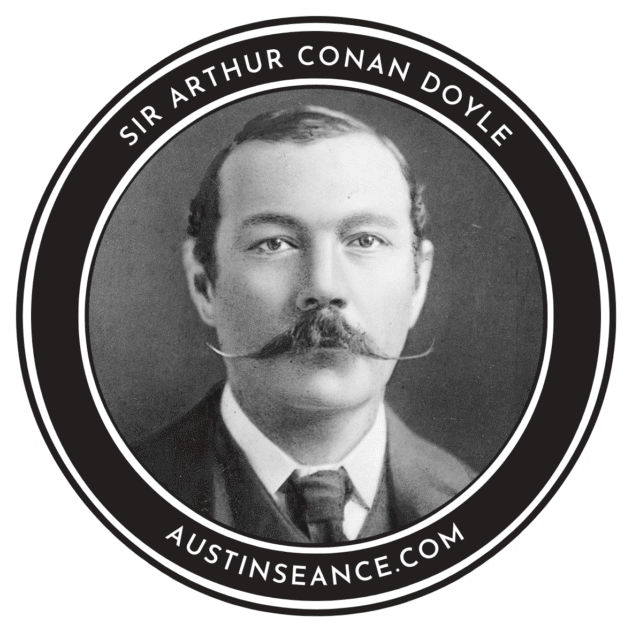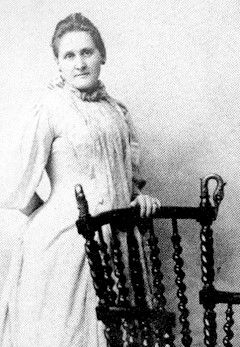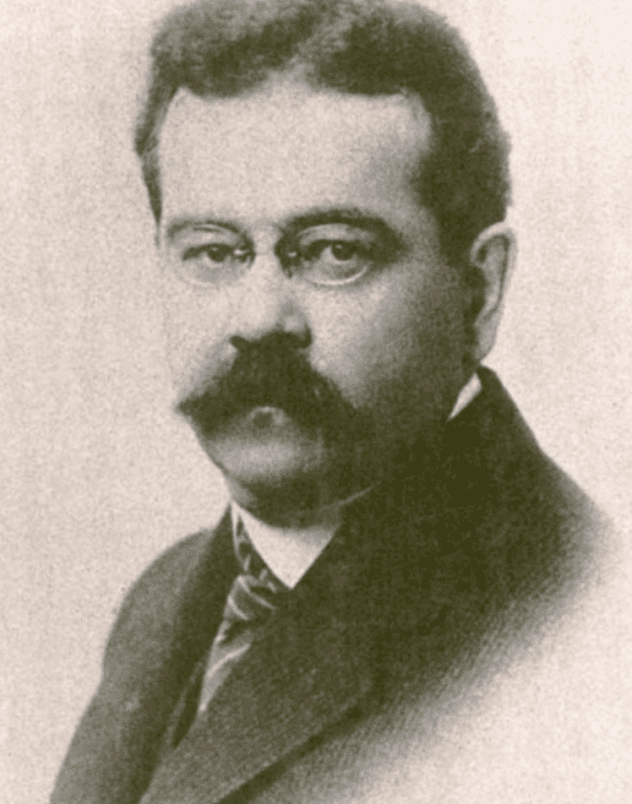
Charles Hoy Fort (August 6, 1874 – May 3, 1932) was an American writer and researcher who specialized in anomalous phenomena. The terms Fortean and Forteana are sometimes used to characterize various such phenomena. Fort’s books sold well and are still in print. His work continues to inspire admirers, who refer to themselves as “Forteans,” and has influenced some aspects of science fiction.
Fort’s collections of scientific anomalies, including The Book of the Damned (1919), influenced numerous science fiction writers with their skepticism and as sources of ideas. “Fortean” phenomena are events which seem to challenge the boundaries of accepted scientific knowledge, and the Fortean Times (founded as The News in 1973 and renamed in 1976) investigates such phenomena.
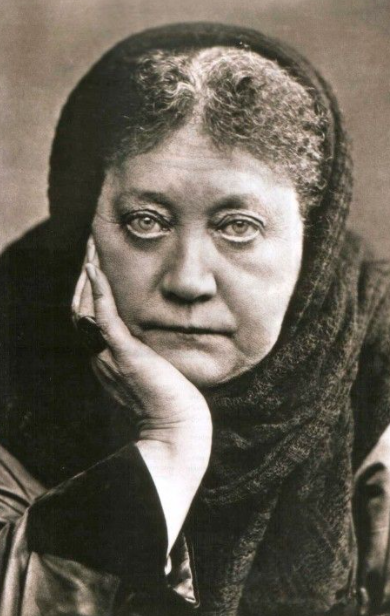
Helena Petrovna Blavatsky, often known as Madame Blavatsky; was a controversial Russian occultist, philosopher, and author who co-founded the Theosophical Society in 1875. She gained an international following as the leading theoretician of Theosophy, the esoteric movement that the society promoted. Her death, on May 8, 1891, is celebrated as “White Lotus Day” among Theosophists. Read more about Madame Blavatsky here.
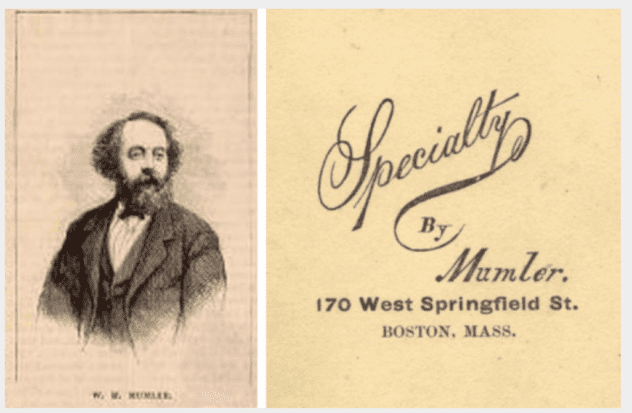
William H. Mumler (1832–1884) was an American spirit photographer who worked in New York and Boston. His first spirit photograph was apparently an accident—a self-portrait which, when developed, also revealed the “spirit” of his deceased cousin. Mumler then left his job as an engraver to pursue spirit photography full-time, taking advantage of the large number of people who had lost relatives in the American Civil War. His two most famous images are the photograph of Mary Todd Lincoln with the ghost of her husband Abraham Lincoln and the portrait of Master Herrod, a medium, with three spirit guides.
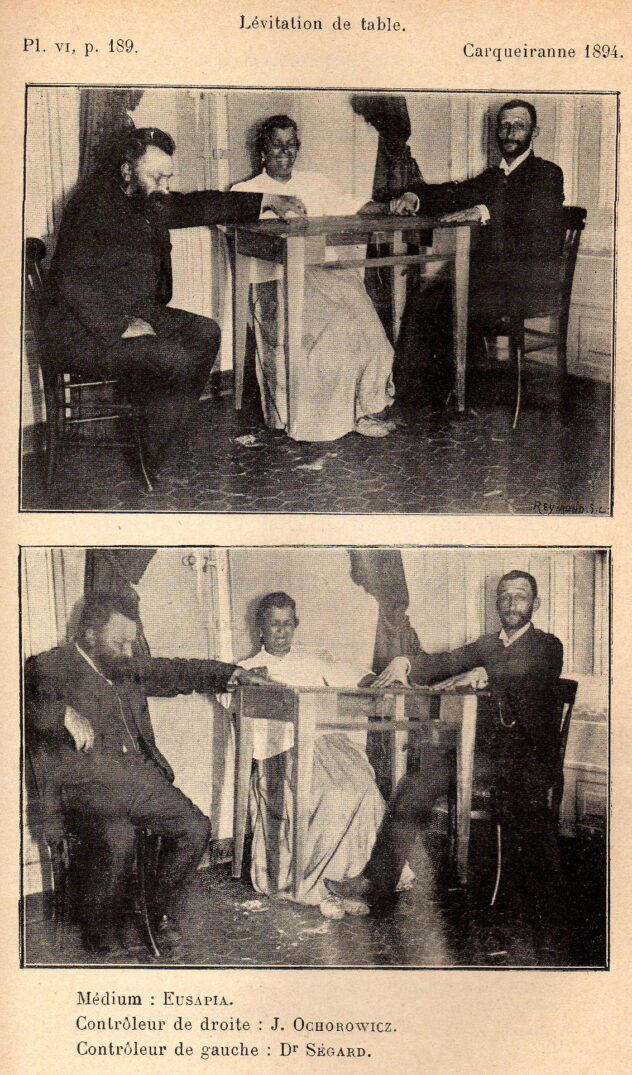
Eusapia Palladino (alternative spelling: Paladino; 21 January 1854 – 16 May 1918) was an Italian Spiritualist physical medium. She claimed extraordinary powers such as the ability to levitate tables, communicate with the dead through her spirit guide John King, and to produce other supernatural phenomena.
Her Warsaw séances at the turn of 1893–94 inspired several colorful scenes in the historical novel Pharaoh, which Bolesław Prus began writing in 1894.
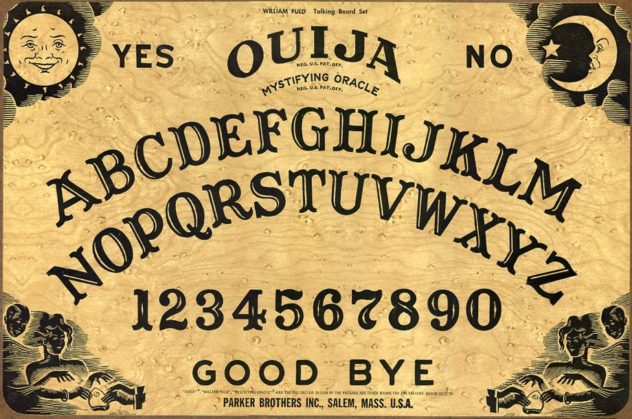
Six years after the appearance of that article a patent for a “Ouija or Egyptian luck-board” was filed by Baltimore attorney Elijah H. Bond, who in turn assigned the rights to Charles W. Kennard and William H.A. Maupin. This early talking board (the patent was filed on May 28, 1898) was the first with the Ouija name.
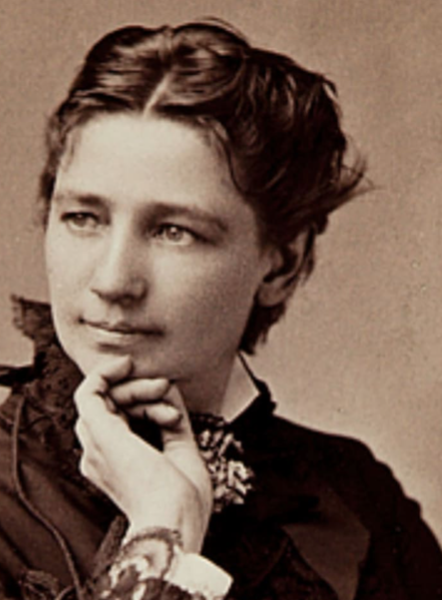
Victoria Woodhull (September 23, 1838 – June 9, 1927), a medium and carnival show clairvoyant, was the first woman-owned Wall Street brokerage house, the first woman to address a Congressional committee and the first woman to run for president. She championed free love, believed that marriage was institutionalized slavery and supported paid sex work.
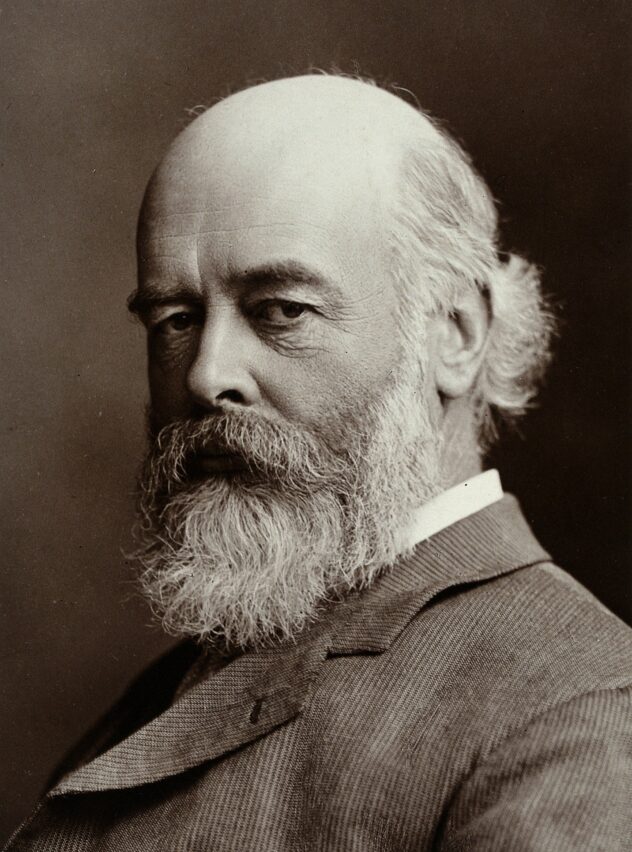
Sir Oliver Joseph Lodge, FRS (12 June 1851 – 22 August 1940) was a British physicist and writer involved in the development of, and holder of key patents for, radio. He identified electromagnetic radiation independent of Hertz‘s proof and at his 1894 Royal Institution lectures (“The Work of Hertz and Some of His Successors“), Lodge demonstrated an early radio wave detector he named the “coherer“. In 1898 he was awarded the “syntonic” (or tuning) patent by the United States Patent Office. Lodge was Principal of the University of Birmingham from 1900 to 1920.
Lodge was also noted for his Spiritualist beliefs and research into life after death, a topic on which he wrote many books, including the best-selling Raymond; or, Life and Death (1916), describing what he believed to be detailed messages through a medium from his deceased adult son who was killed in World War I.
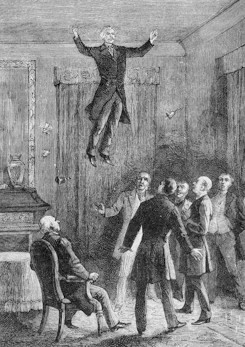
Daniel Dunglas Home (pronounced Hume; 20 March 1833 – 21 June 1886) was a Scottish physical medium with the reported ability to levitate to a variety of heights, speak with the dead, and to produce rapping and knocks in houses at will. His biographer Peter Lamont opines that he was one of the most famous men of his era. Home conducted hundreds of séances, which were attended by many eminent Victorians.
